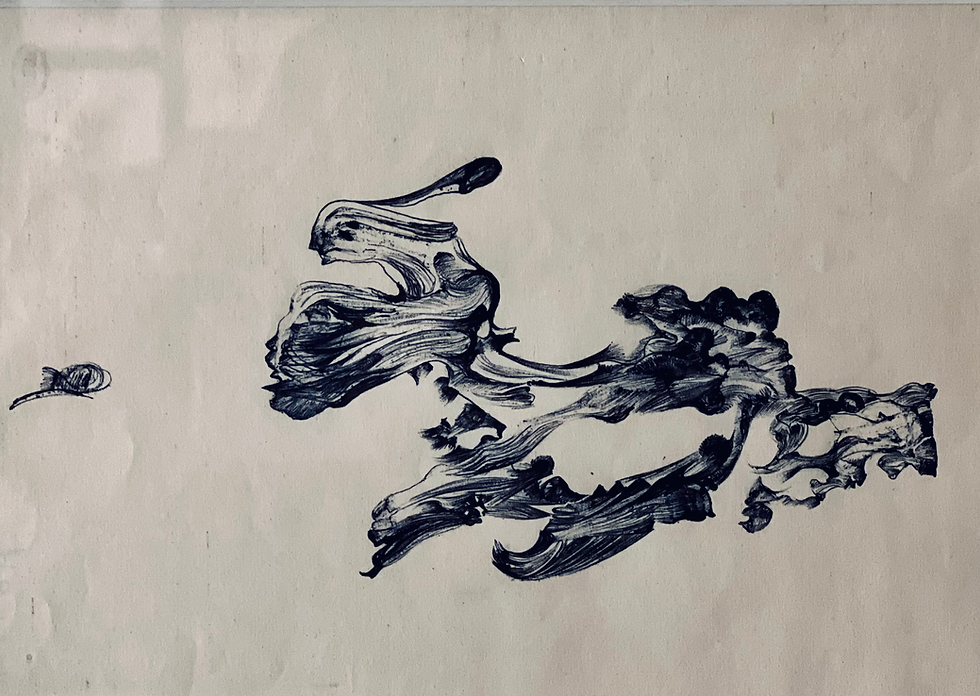The Will to Meaning
- Roxanne Noor
- Mar 31, 2024
- 4 min read

The human spirit has an innate will. This will is what propels us to move forward in the riddled labyrinth that is existence. Freud believed the greatest will, was the will to pleasure. He felt if sex was oppressed, we would become neurotic. He was in many ways correct. Adler spoke of the will to power. He believed that as children we were powerless creatures, who were ruled and governed by our parents. Our lives afterward become an attempt to overcome this inferiority.
Frankl learned from Adler, and Adler learned from Freud. Frankl determined that the primary motivational force of man was the will to meaning. From his experience living in a Nazi concentration camp, he was confronted with death and the pinnacle of brutality. He knew that even if a person was trapped, as he was, there’s still a choice, but it’s an inner choice. Frankl saw firsthand that what allowed people to continue onward, was a why, a meaning to the unbridled madness.
Frankl created Logotherapy, which states that the will to meaning, gives choice and a higher chance of survival. There are three values in Logotherapy; the creative, experiential, and attitudinal.
The creative value states that we seek meaning in our day-to-day deeds. This can be our work and how we do what we need to do in the humdrum of everyday life. The creative energy is one of producing. This can be in our family life or the way we run a business and make bread.
The experiential value is not something we necessarily need to do or achieve, it’s giving oneself to the moment. In Frankl’s book Man's Search for Meaning he talks about a group of prisoners in the Nazi camp watching the sunset. This is a profound example of the experiential. It is being taken by the moment, not for any dire need, but for the moment itself.
Humans give themselves to beauty or truth through a spontaneous experience. We feel it when we are awed and grabbed by life. It can be the serenity of a flowing river, the grandness of a mountain, or the euphoria of another person. The experiential value is largely based on beauty, where duality collapses in on itself. We become the moment.
Frankl was in a situation where he could not access creative value, because in the death camp, he couldn’t choose his work or be close to his family. In forced labor, there were only brief moments to access the experiential value because he was in survival mode. Thus, perhaps the most important value for him at the time was the attitudinal.
The attitudinal value is how a person chooses to respond to a situation they are placed in. The attitudinal is a way of being. In the concentration camp, Frankl had only his naked body. He didn’t have choices or options, which then made his primary value the attitudinal. He had a choice in how he treated his fellow inmates and how he perceived the situation he was forced into.
The attitudinal value is significant because it gives a source of power to someone who may feel victimized. It says that even in a situation you didn’t choose, there is still a meaning you can derive from it. This choice of one’s attitude, cannot be taken away because it comes from within.
When Frankl toured the States to speak, he went to San Quentin prison. Some of the prisoners had read his book and respected him. They knew he was in a situation like theirs, and one in which he could’ve been murdered. Frankl gave the prisoners a talk on the defiant power of the human spirit. He said their circumstances didn’t define who they were, but their response to prison would shape the given meaning of their lives. This is a form of hope.
In therapy, a patient can believe that because they were abused by their father, they cannot trust men. Men are then cast as violent and dangerous. Logotherapy would work on the attitudinal value, to reframe the narrative of the past. After Logotherapy, the patient may sense that because they were abused by their father they know what it’s like to hurt. They will then work to ease the suffering of society by being kind. They will be peaceful warriors along with the others like them.
In many ways, we are all at the mercy of the universe. When we don’t have meaning, we get lodged in an existential vacuum of frustration. This frustration manifests itself as boredom, apathy, and an overall disinterest in humanity. Meaning imbues the soul with vitality. It allows us to give our being to a purposeful cause. Meaning is a catalyst for action and stands in stark opposition to numbness.
Humans are generally meaning making machines. In each situation, an experience can be meaningless or meaningful by how we tackle it. It is our choice, and this inward decision is our greatest responsibility toward our fellow man. Meaning determines the quality of life and how we perceive what happens to us.



Comments